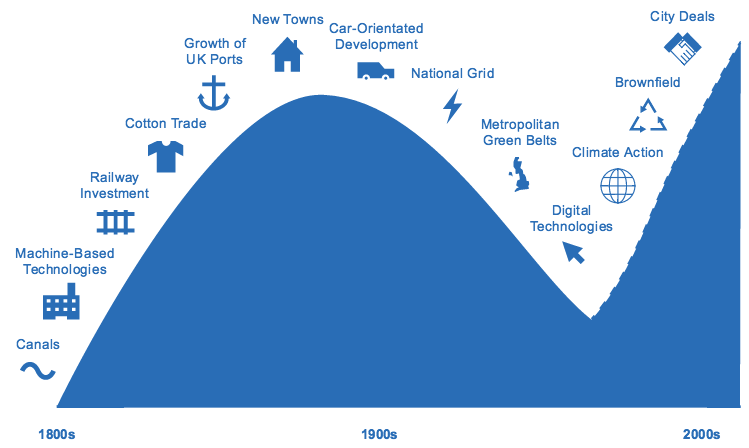The Government Office for Science initiated a Foresight project on Future of Cities, which has now concluded after three years of effort. The exercise was relevant to the plans of the Government for devolving powers to city-regions.
Some three dozen reports and essays were commissioned from experts (including my contribution on Peak Car), and a number of workshop meetings held. Some of the authors have contributed to an issue of Prospect magazine.
There are four reports as final outputs of the project. These are high level summaries, of substantial and varied inputs, which are neither concise nor cogent. The problem is the complexity of cities and the difficulty this creates for thinking about their future.
Forecasting and Complexity
The real world is complex, which makes it hard to understand, and which in turn means that forecasting is problematic. Models of particular regions or sectors assume continuity between past and future, relying on historic relationships as a guide to the future, subject to assumed changes in exogenous variables such as GDP and population growth, oil prices, and technological developments. But if the future is different from the past then historic relationships may no longer apply and forecasts cannot be relied upon.
One approach to dealing with such uncertainty is by means of scenarios that allow for new possibilities. While these may help to indicate the range of possible outcomes, they tend to be somewhat arbitrary and so are rarely persuasive.
Another approach is two-pronged, addressing contrasting developments. We attempt to identify: (a) factors which show long-term stability; and (b) points of transition between one set of relationships and a successor set. For travel, a long term constant is average travel time, of about an hour a day. And a point of transition is the end of the twentieth century when the Peak Car phenomenon signalled a change in behaviour, travel demand no longer being driven mainly by growth of incomes but now by population growth.
Assessment
The Future of Cities project has generated much interesting evidence from experts but has been disappointing in that it has not yielded illuminating conclusions. Naturally, at the beginning of such a project, the outcome is uncertain even if hopes are high. In the event, the conclusions are worthy, but bland.

